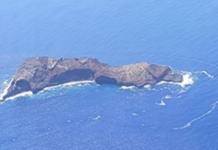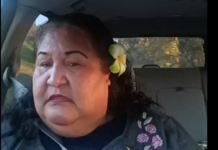Nuku’alofa– Tonga heads into its November 20 general election under rules that exclude its vast overseas population, even as new figures and international warnings underscore a stark reality: more than twice as many Tongans live abroad as in the kingdom.

An estimated 200,000 Tongans reside in Australia, New Zealand, and the United States, compared to just 110,000 living in Tonga. Despite their economic importance—sending millions in remittances annually—the diaspora has no legal right to vote in national elections.
A new report by the International Monetary Fund (IMF) this week confirms Tonga’s rising “outward migration,” warning that the trend is weakening the country’s potential economic growth. It comes amid renewed calls for diaspora voting rights, including fresh demands to allow Tongans working in Australia and New Zealand under seasonal labour schemes to participate in national elections.
This follows revelations that Tonga is considering a review of its electoral system after next week’s polls.
Electoral Commissioner Pita Vuki acknowledged that a review of the electoral system is likely after the polls, citing concerns about declining turnout and structural weaknesses. He confirmed that 64,700 voters are registered for this year’s election, up from 60,000 in 2021, reported RNZ.
It remains unclear whether the review will include consideration of legalising voting rights for Tongans living in the diaspora.
The debate over voting rights comes amid a deepening “brain drain.” Government reports for 2024 and 2025 show thousands leaving for better wages abroad, leaving 861 civil service positions vacant this year alone.
As we recently reported, Tonga’s Ministry of Health was facing a severe staffing crisis, with Vaiola Hospital losing 45% of its nursing workforce since the COVID-19 pandemic. The hospital’s Matron, Akesa Halatanu, said the decline was mainly due to overseas work opportunities and personal reasons.
Advocates say the exclusion of overseas Tongans from voting is indefensible.
ʻOfa Guttenbeil-Likiliki, director of the Women and Children Crisis Centre, reportedly said that Tonga has gone through 14 years and four elections since the 2010 reforms without any move to amend the Electoral Act.
She told RNZ that around 5,000 Tongans working in Australia and New Zealand under labour schemes are being “deprived of their basic human right to vote,” adding that the issue affects the entire diaspora, whose financial contributions are vital to Tonga’s economy.
In 2021, ABC News reported calls from Tongan lawyer Leilehua Faʻonevai in Australia urging Tonga to allow its citizens abroad to vote. She argued that Tongans in Australia play a crucial role in supporting the kingdom’s economy through remittances and should have a voice in national elections.
Global Tongan Footprint
Recent census data shows that more than 200,000 Tongans now live in Australia, the United States, and New Zealand—excluding those in other parts of the world. Official figures indicate that the United States recorded 78,871 people of Tongan descent in its 2020 Census, while Australia reported 43,465 in 2021.
New Zealand’s 2018 Census listed 82,389 people of Tongan ethnicity, with more recent estimates suggesting the number has grown to around 97,824.
The US figures include individuals of full or partial Tongan ancestry.
Significant communities are concentrated in Utah and California in the United States, New South Wales in Australia, and the Auckland region in New Zealand—underscoring the global reach of Tonga’s population beyond its borders.







